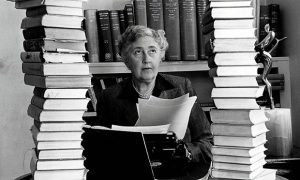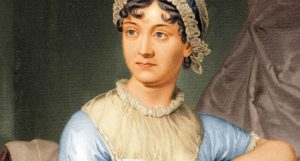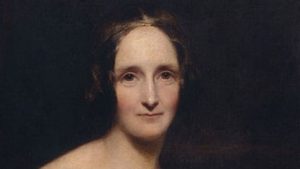We hear a lot about great writers in school. Mostly the likes of Plato, or Shakespeare, or Dickens. That’s all well and good, but there are some female writers who crashed through the social barriers holding them back in their time to write the stories that they had inside of them, bursting to get out. They redefined their chosen genres, they were prolific, and they were absolutely brilliant. There’s a lot of female writers like that. We’ll cover three old favorites.
1. Jane Austen
Jane Austen was born on December 16, 1775, just one year before the American Revolution. She was an English novelist known best for her detailed, sweeping romance novels. Pride and Prejudice is her most famous one, but Mansfield Park made her the most money. All copies were sold out within six months. It sold more copies and made her more money than any other one of her novels. She wrote Northanger Abbey as a satire on the popular Gothic romance genre. But the point of Jane Austen is not how many novels, or how much money she made, but how utterly timeless her books are. Sure, they’re set during the late 18th century, following groups of wealthy people all trying to find husbands and wives, but Austen had such an unwavering grasp on the nature of people, and that was what made her characters brilliant. Characters like the hypochondriac, anxious Mrs. Bennett, and the sensible and pessimistic Elizabeth, and the talkative Ms. Bates have captured our imaginations for centuries. Jane Austen is, after Shakespeare, one of the most widely recognized authors of literature of all time, and it’s precisely her grip on character and humor that make it that way. She single-handedly redefined the genre of romance. Before her, there hadn’t really been many romance novels of that caliber, and romance authors all around the world have tried to emulate her novels ever since.
2. Agatha Christie

PHOTO: theguardian.com
Agatha Christie is, beyond a doubt, the best-selling author of all time. Every other author pales in comparison. She wrote 66 detective novels, 14 short story series, and six romance novels. She was made Dame Agatha Christie for her contribution to literature. She comes third in ranking for best-selling, third only to Shakespeare and the Bible. Her novels have sold roughly 2 billion copies worldwide. Her novel And Then There Were None is her best-selling novel to date, with over 100 million sales. Her novels have been adapted for television, radio, video games and comics, and over thirty feature-length films have been made from her stories. Her brilliance in the crime genre is unparalleled. Mostly, that’s because she knew people inside and out. She knew what made them tick, she knew exactly why a certain person might murder another and she knew exactly all of the little clues that she could drop to let on who did the murdering. Her beloved Hercule Poirot, Miss Marple, and others have stuck with the human race ever since they were first written about. Basically, she’s been blowing minds with her mysteries since her first one was published in 1919. She absolutely defined the crime genre right alongside Sir Arthur Conan Doyle’s Sherlock Holmes. And no crime writer has been able to touch her since.
3. Mary Shelley
Mary Shelley is literally the mother of the science fiction genre. Before H.G. Wells, or Jules Verne, or George Lucas, there was Mary Shelley and her famous novel Frankenstein. Shelley was born in London in 1797. By the time she was fifteen, her father described her as “singularly bold, somewhat imperious, and active of mind. Her desire of knowledge is great, and her perseverance in everything she undertakes almost invincible”. In May 1816, Mary and a group of friends, including the famous poet Lord Byron, spent the summer at Lake Geneva. They spent their time during that rainy summer boating, writing, and talking late into the night. One night, they were all telling ghost stories around the fire when Byron suggested that they all write one. On that dare, Mary Shelley began writing Frankenstein, dealing with the question of the nature of life and immortality, and the idea that a corpse could be reanimated. It was published anonymously in 1818.
Mary Shelley wrote Frankenstein in a epistolary style, meaning in a series of short letters. Some have reasoned that she wrote letters from a man’s point of view to give her work a little bit more credit, since, at the time, female writers and science didn’t really mix. Whatever her reason for writing, Frankenstein opened up a whole new world for writers after 1818. Frankenstein has, and always will be the precursor to which all science fiction writers can trace their story’s lineage. It defined a genre which always deals with the question of life, of our place in the world, our purpose and of what it means to be human.



